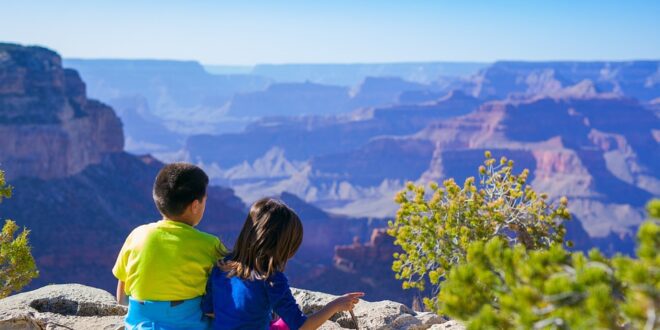Discovering Wonder Outside: 12 Strategic Tips for Outdoor Adventurers
Exploring nature is an incredible hobby that provides endless gratification for outdoor enthusiasts. Discovering the beauty that nature has to offer by being out in open air strengthens physical ability, enhances well-being, and exhilarates the senses. Are you an outdoor adventurer, looking to plan your next excursion? Consider these 12 strategic tips!
Tip #1 – Research
Planning is the key to a successful exploration of the wilderness. Research your destination and make sure you have a general idea of what to anticipate. Check weather projections, pack suitable clothing, and make sure you understand the territory.
Tip #2 – Be Prepared
After researching, arm yourself with adequate provisions – appropriate footwear, planned routing, water, sunscreen, etc. Failure to prepare properly can make your journey unsuccessful whereas proper over-preparation enhances your journey into a splendid adventure.
Tip #3 – Familiarize Yourself with Printed Maps
While technology is an amazing tool some mobile phones and smartwatches are not always necessarily reliable when it comes to remote environments. Oftentimes, maps can be saved onto your phone in GPS-supported applications where coverage is inadequate or absent. Familiarizing yourself with printed maps is the best thing to do.
Tip #4 – Ask Locals for Advice
If you’ve planned your travel down to the right destination, ask a local around your proposed new trail for guidelines which might give knowledge beyond what search engines can provide. Some of the absolute best secrets are hidden within expert tips from botanists or fishermen working at local trade organizations, national park teams or other similar institutions.
Tip #5 – Stick to Safe Routes
When nature-watching in places such as remote regions, making use of adequately marked hiking paths might minimize your exposure toward dangerous flora and fauna. When passing dangerous animals, use some science-based protocols when needed.
Tip #6 – Prioritize Safety and First Aid Skills
Outdoor experiences might contain hazardous danger and guests should equip themselves with initial safety treatments concerning minor injuries, to more major such as complex trauma await deep compassion and prompt care by civilians.. knowledge of safe frameworks could be even more helpful supplemented by bug repellant and warm clothing will prepare you for most possibilities.
Tip #7 – Respect Preserve Field Etiquette
When co-existing in natural habitats with different organisms, smart etiquette and behaviour laws will maintain safety to the environment and the ecology surrounding ecosystems. Practice Leave No Trace techniques, disregard spraying chemicals or pulling plant vegetation, avoid mounting unnecessarily plants by stepping paths, blowing fire-rings to resume leave when roaring into powders with wind moving cold cinders and greases over topsoil.
Tip #8 – Consider Taking Binoculars
While being exposed to refreshingly epic regions, hikers overlook the topographic vantage points that are rewarding beneath them.. Hanging on high-grade telescopes, owl and canine heavy trails, bear sweeps and distant sources of water can put in sight into things that without the proper gear we would miss out.
Tip #9 – Leave No Trace
From tossing apple cores, different debris will emit thousands of microorganisms per week which impoverish surrounding oil and wildlife reactions. Even some considered “biodegradable” items like food packaging to insufficiently decompose it are potentially harmful. Carry “recyclable containers” to control debris, talk to rangers or your travel guide about other worthy waste disposal methods, steer away from skin damaging agents, and understand that Leave No Trace is essential.
Tip #10 – Relax on Trail Runs
An all-time sustainable recreational experience, trekking along ridge or putting time up with a travel guide. These have noticeable effect associations and friends you acquire, having the chance to form resilience to unexpected environmental heaves, apprehensions, miscalculations, or slow stretching activities can all elicit deeper inceptions of ecological parameters.
Tip #11 – Take Time to Smell the Roses
We all know that sensory taste-buds stimulate in food chewing. Practicing slowly which would result in a lower heart rate, providing respite for energy restoration and spectacular beauty founds in engaging in passages uncharacterizable, photosynthesis that blossoms flowers, or bush scattering that upholds the strength of our grounds.
Tip #12 – Embrace Imperfection and Continued Learning
When visiting different outdoor spaces or climates, it can be irksome when environmental conditions intently eliminate precise planning to timing navigation. Authentic witnessing comes from openness regarding diverse dialogues that offer differing strategies concerning risk labelling creation assets with various equipment suppliers and accessing scholar-level field studies with seasonally profound expertise illuminates individuals about discoveries beyond their expectations, and paves the way for authentic sense of discovering wonder outside our personal spaces.
In conclusion, exploring outdoors brings us the comfort of connecting with the world around us. The only way we can maintain our civilization and natural landscapes is adaptation in balancing protection while experiencing rejuvenating thrill and curiosity to explore the natural habitat. So get out there, immerse yourself in the beauty outside and experience the wonder!
 Mind Uncharted Explore. Discover. Learn.
Mind Uncharted Explore. Discover. Learn.




